What is MS?
Multiple Sclerosis, or MS, is an autoimmune disorder that affects the central nervous system (CNS), specifically the brain and spinal cord. Autoimmune means that the body’s immune system mistakenly attacks its own tissue.
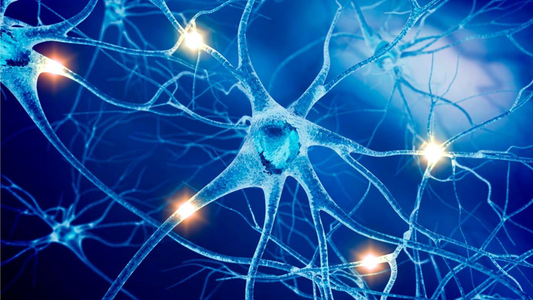
Understanding the role of the CNS
The brain and spinal cord contain cells called neurons, which send signals within the CNS to other parts of the body. These signals control physical functions, such as balance and muscle coordination, as well as thinking and other abilities. Signals pass through neurons by way of nerve fibers called axons which are protected by a covering, called myelin, that help the axons carry signals.
With MS, damage to neurons disrupts the body’s ability to send signals and causes MS-related symptoms. Symptoms may vary because of the location and extent of the damage. Today, researchers believe that both inflammation and neurodegeneration contribute to the erosive actions of MS.
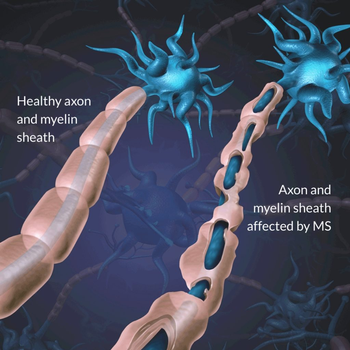
The erosive actions of MS
Inflammation is activated by the immune system. This causes swelling and damage to the myelin. When the myelin is lost, scars called scleroses are left behind. This is where the name Multiple Sclerosis comes from.
Permanent damage, and the loss of neurons and axons, is known as “neurodegeneration.” Researchers are learning more about this complex process every day. It’s very important to know that neurodegeneration occurs early in MS and continues throughout the course of the disease. Recent studies have shown that neurons and axons are also damaged and even destroyed during the course of MS, even when inflammation is not present. These findings, MS experts have concluded, support starting therapy early.
Who Gets MS?
Multiple sclerosis usually affects people between the ages of 20-50 with most people experiencing their first symptoms in their 20’s or 30’s. There are higher numbers of cases in certain northern latitudes, including Washington. More women than men have MS, and more Caucasian people are affected than other ethnic populations. Studies indicate that genetic factors may make certain individuals more susceptible to MS, but no evidence exists that it is directly inherited.
No one knows why or how people get multiple sclerosis. Worldwide, MS may affect more than 2 million individuals, and in the United States, approximately 400,000 people live with MS. It affects all races but is more common among people of northern European ancestry.

Symptoms
- Symptoms of MS vary greatly from person to person and are very unpredictable. Symptoms may be temporary, recurring or permanent. These may include:
- Blurred or double vision
- Overwhelming or unusual fatigue
- Bladder or bowel problems
- Diminished sexual sensation
- Coordination and balance difficulties
- Muscle spasticity, or stiffness
- Confusion, difficulty focusing, organizing or planning
- Tremors
- Weakness, numbness or tingling sensations in the arms or legs
- Paralysis
- Headaches
- Slowing or slurring of speech
- Seizures
- Memory or cognitive problems
- Hearing Loss
- Depression and/or mood swings
- Speech or Swallowing disorders
- Heat sensitivity
- Itching
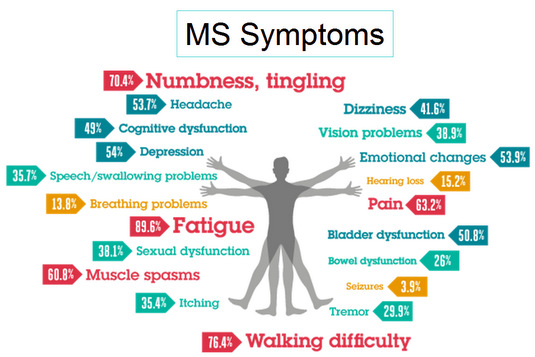
What causes the symptoms?
MS symptoms result when an immune-system attack affects myelin, the protective insulation surrounding nerve fibers of the central nervous system (the brain and spinal cord). Myelin is destroyed and replaced by scars of hardened “sclerotic” tissue. Some underlying nerve fibers are permanently severed. The damage appears in multiple places within the central nervous system.
Myelin is often compared to insulating material around an electrical wire; loss of myelin interferes with the transmission of nerve signals.
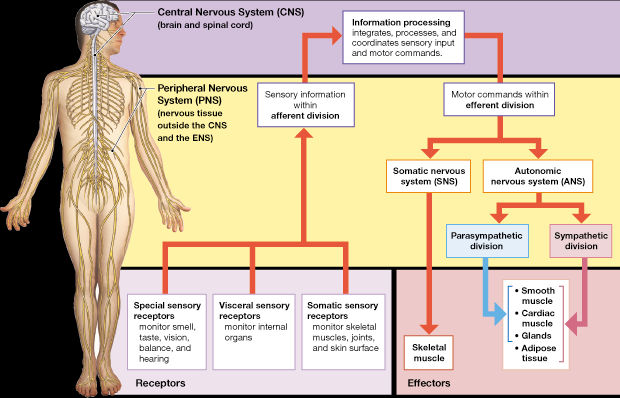
Is MS Contagious?
No, it is not. You cannot give it to nor get it from anyone else.
Is MS fatal or life threatening?
Although it is a lifelong illness, the vast majority of people with MS live just under the national averages for men and women.

What Causes MS?
It is not known what causes MS. Many different theories have been proposed, but the most widely held current theory is that MS develops in genetically predisposed people after cumulative exposure to a combination of viruses in early childhood.
Why is MS so difficult to diagnose?
In early MS, symptoms that might indicate any number of possible disorders come and go. Some people have symptoms that are very difficult for physicians to interpret, and these people must “wait and see.” While no single laboratory test is yet available to prove or rule out MS, magnetic resonance imaging (MRI) is a great help in reaching a definitive diagnosis.
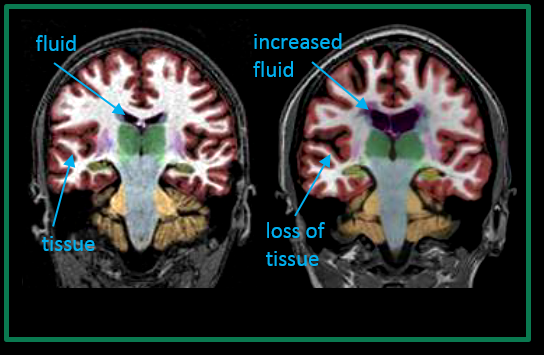
How will MS affect me?
It is very difficult to predict how MS will affect you. It affects each person differently. The course of MS usually follows three possible directions:
- Flare-ups (exacerbations) in which symptoms become worse or new symptoms develop, followed by periods where symptoms may disappear. (Relapsing)
- A slow, progressive worsening of symptoms. (Primary Progressive)
- A course of relapsing symptoms, followed by a steady, progressive decline. (Secondary Progressive.)
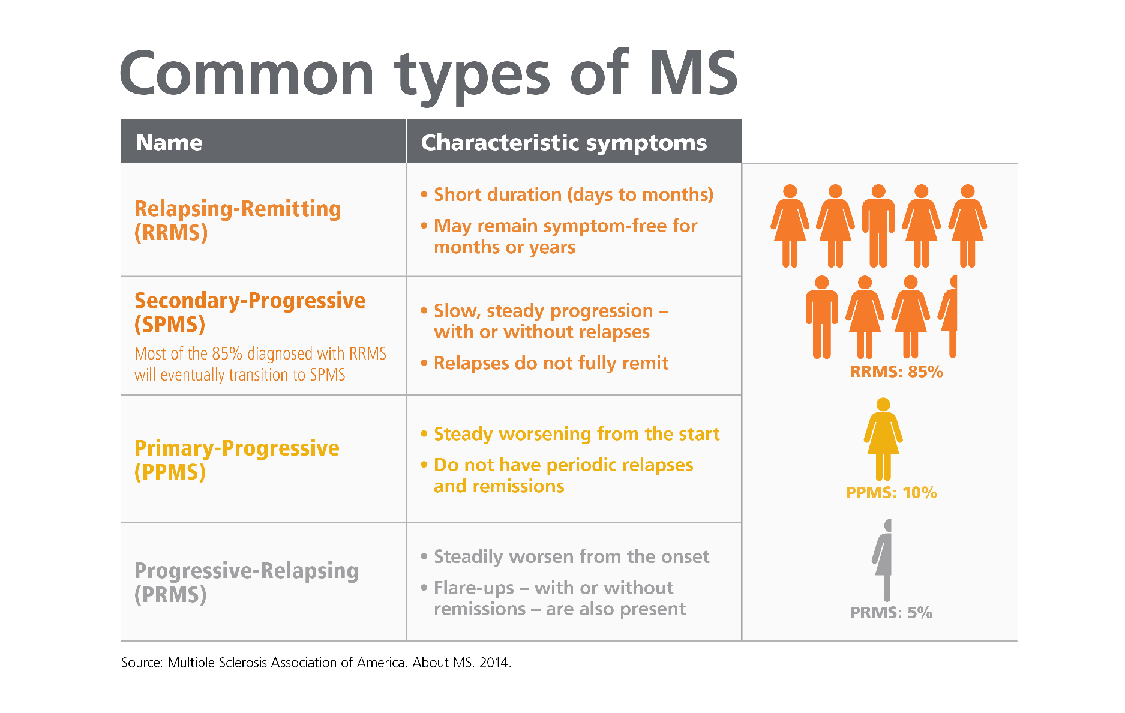
What is an exacerbation?
An exacerbation of MS (also known as a relapse, attack, or flare-up) causes new symptoms or the worsening of old symptoms. It can be very mild or severe enough to interfere with a person’s ability to function at home and at work. No two exacerbations are alike, and symptoms vary from person to person and from one exacerbation to another. For example, the exacerbation might be an episode of optic neuritis (caused by inflammation of the optic nerve that impairs vision) or problems with balance or severe fatigue. Some relapses produce only one symptom (related to inflammation in a single area of the central nervous system) while other relapses cause two or more symptoms at the same time (related to inflammation in more than one area of the central nervous system).
To be a true exacerbation, the attack must last at least 24 hours and be separated from the previous attack by at least 30 days. Most exacerbations last from a few days to several weeks or even months.

What causes MS exacerbations?
Exacerbations are caused by inflammation in the central nervous system. The inflammatory damages the myelin, which slows or disrupts the transmission of nerve impulses and causes the symptoms of MS.
In the most common disease course in MS—called relapsing-remitting MS—clearly defined acute exacerbations (relapses) are followed by remissions as the inflammatory process gradually comes to an end. Going into remission doesn’t necessarily mean that the symptoms disappear totally—some people will return to feeling exactly as they did before the exacerbation began while others may find themselves left with some ongoing symptoms.
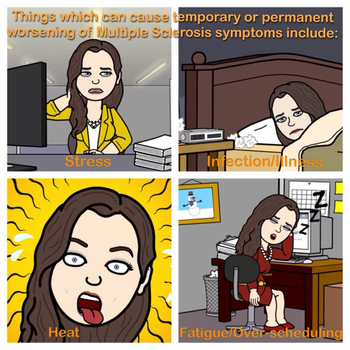
Does MS always cause paralysis?
No. Moreover, the majority of people with MS do not become severely disabled. Two-thirds of people who have MS remain able to walk, though many will need an aid, such as a cane or crutches, and some will use a scooter or wheelchair because of fatigue, weakness, balance problems, or to assist with conserving energy.

Is there a cure for MS?
Multiple sclerosis can be treated, but not cured. The goal of the available relapsing-remitting MS therapies is to reduce the frequency of relapses and new damage to your nervous system. Unfortunately, damage that already exists may not be repaired by therapy.

*Information from this page came from the following websites: MSA of King County, Copaxone and the National Multiple Sclerosis Society.

























